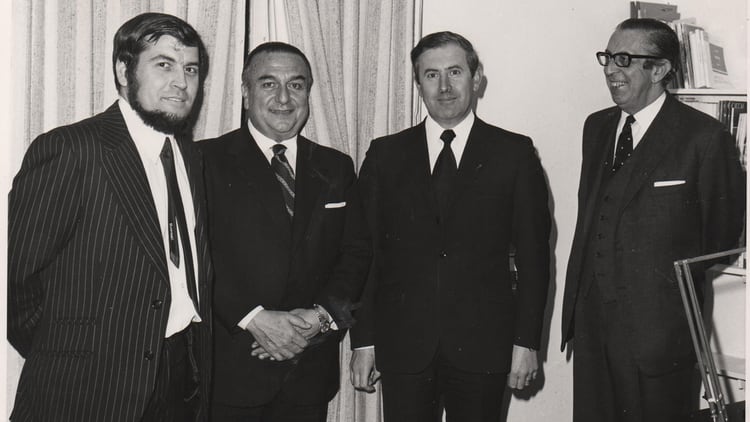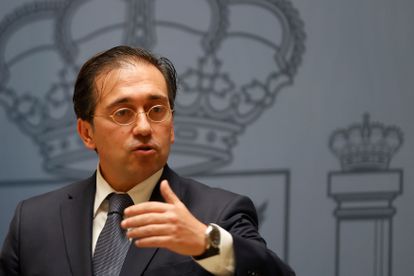Alberto Rubio
The current Instituto Cervantes in Dublin celebrates today 50 years since its foundation as the Spanish Cultural Institute on 11 February 1974. Half a century in which it has demonstrated the importance of public diplomacy in strengthening a country’s image abroad through the dissemination of culture, the arts and language.
At the inauguration of that Institute, whose aim was to disseminate the language and culture of Spain in Ireland, the Irish Minister for Foreign Affairs, Richard Burke, stressed that “Spanish has become the Romance language that has achieved the greatest diffusion, and knowledge of the Spanish language will reveal to you the thinking, life, culture and customs of the Spanish people and will reveal to you the secret of their intimacy”.
The impetus for this pioneering institution came from a young reader of Spanish, José Antonio Sierra, who arrived in 1968 at the Department of Hispanic Studies at Trinity College Dublin. At that time, he already had the idea of creating an entity to promote the dissemination of the Spanish language in the country.
A personal initiative that was underlined by Burke, in the presence of the then Director General of Cultural Relations of the Ministry of Foreign Affairs, José Luís Messía, during the inauguration of the centre. The Irish minister praised “especially José Antonio Sierra, whose fervent enthusiasm and hard work have established the bridge to Spain that is the Spanish Cultural Institute in Dublin”.
Sierra recalls that in 1969 he presented the project for the creation of the Spanish Cultural Institute in Dublin to the Spanish government. The following year he set up the so-called Spanish Centre for Documentation and Cultural Exchanges in Dublin with the help of the Language Centre of Ireland and the Directorate-General for Cultural Relations of the Spanish Ministry of Foreign Affairs.
The Irish press welcomed the initiative, which the Irish Times reported in its 27 February 1970 edition as “designed to promote cultural relations between Ireland and Spain” and “will lead to greater understanding and a fuller relationship between the two countries”.

Sierra was appointed director of the Dublin Cultural Institute, which began its activities in 1972, although it was not until 1974 that it was officially inaugurated, in which, in addition to the aforementioned Burke and Messía, the Spanish ambassador to Ireland, Joaquín Juste, numerous representatives of Irish cultural and artistic life, and members of the Spanish colony were present.
One of the most interesting features of the Institute was that its management always tried to be self-financing. In fact, except for the cost of renting the building and supplies, the salaries of the staff came out of the tuition fees paid by the students.
During his speech, Richard Burke, who spoke in Gaelic, Spanish and English, made clear the interest in Spanish language and culture in Ireland, as well as the number of Spanish students. A language that serves as an “instrument” for “millions of people” from “many parts of the world” to communicate, as he pointed out.

The Spanish Cultural Institute in Dublin was the first to introduce the teaching of Catalan, Basque and Galician, in addition to Spanish, in its courses for foreigners. Sierra himself acknowledged years later that this initiative, which only took the form of a few Catalan classes because there were not enough students for Galician and Basque, “raised hackles in certain sectors” in Spain, which considered it “dangerous”.
During those early years, the Spanish Cultural Institute was also involved in the promotion of Spanish cultural tourism, creating 100 Spanish information sections throughout Ireland and a resource centre that included tourist information documentaries on all Spanish provinces and regions.
It also created the annual ‘Spain’ awards to recognise the best school work on Spain and collaborated in the organisation of EXPOTUR in 1972, the Spanish tourism exhibition which was visited by more than ten thousand people, an unprecedented success.
Creation of the Instituto Cervantes
In March 1991, the cultural institutes and centres of the General Directorate of Cultural Relations of the Ministry of Foreign Affairs, as well as other cultural centres of other ministries, were attached to the Instituto Cervantes, which was created by Law 7/1991 of 21 March of that year. Its first director was the historian Claudio Sánchez-Albornoz.
The Spanish Cultural Institute was renamed the Instituto Cervantes Dublin in 1992, according to Sierra, who served as cultural manager and acting director of the Institute until the arrival of the new director, Francisco Javier Odriozola Lino, in June 1993.
The President of Ireland, Mary Robinson, and the Spanish Foreign Minister, Javier Solana, inaugurated the Instituto Cervantes in Dublin on 7 February 1995, thus culminating an adventure that had begun 21 years earlier and is now 50 years old.







